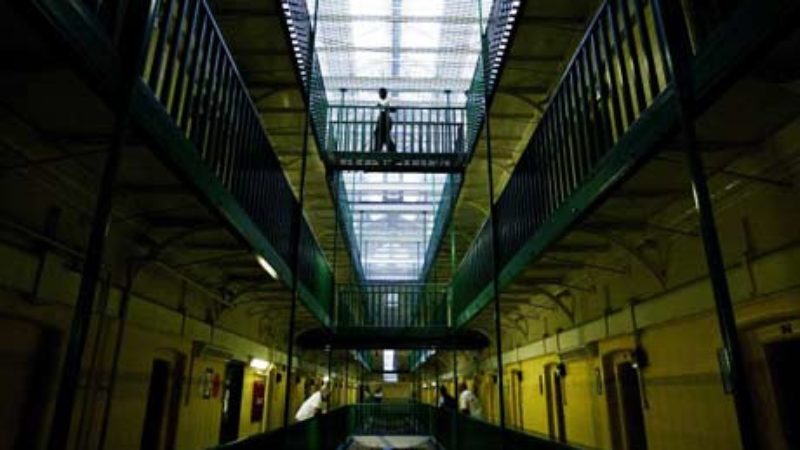
Last week saw the release of the (rather misnomered) Safety in Custody statistics – the most recent government statistics on suicide, self-harm, violence and assault amongst the c.87,500 people held in prisons in England and Wales. They are a deeply sobering read. For example, self-harm rates are 878 incidents per 1000 prisoners meaning there were over 76,000 recorded incidents of self-harm over the previous 12 month period. There were more than 10,000 assaults on staff in the last year. 96 prisoners died by suicide, a 9% increase on the previous 12 months; about a third of prisoners who die by suicide are on remand – that is, they have not stood trial and received a verdict.
These alarming statistics bring the latest in a long list of headlines that the prison permacrisis has continued to make since Labour came to power last July.
READ MORE: ‘Labour must offer pride, not just employment, to former coal communities’
We all understand the task the Government has in turning the country round after 14 years of Tory austerity and neglect. The decimation of public services is perhaps felt nowhere more acutely than in the prison system. The Institute for Government’s annual public service performance tracker pre-pandemic singled prisons out as ‘exceptional’ in terms of their decline in quality due to austerity and in 2023 noted prisons, amongst all public services, were ‘particularly dire‘. The break-through headlines of an at capacity system, the erroneous accidental release from HMP Chelmsford of Hadush Kebatu and record-breaking levels of self-harm all tell the same undergirding story of a broken system incapable of producing the outcome needed – safety for all.
Previous Justice Secretary Shabana Mahmood’s quick work addressed the prisons’ capacity crisis through the early release scheme and has successfully avoided running out of prison space in the first few months of a Labour Government. Current Justice Secretary David Lammy set out in his September Party conference speech the importance of the work of probation officers and a pledge to recruit thousands more to clear up another Tory mess – the botched separation and reunification of probation. As well as fire-fighting and putting right the worst of the appalling regime inherited from the Tories, there has to be sustained medium and long-term work to enable a justice system based on Labour values that is timely, fair and that tackles root causes.
Subscribe here to our daily newsletter roundup of Labour news, analysis and comment– and follow us on Bluesky, WhatsApp, X and Facebook.
To enable safer streets and communities it means having prisons that can – at minimum – keep those who live and work in them safe, so that the work of rebuilding lives can be done. That cannot happen in the poor physical conditions of crumbling, overcrowded Victorian prisons and with unattended deep despair that tips into more violence to oneself or others.
If we want to reduce the number of victims and reduce levels of crime, we have to ensure prisons are more than warehouses of pain that deprive people of their liberty. In such fiscally difficult times, the economic case alone for making prisons work is compelling. When prison places cost an average of £52,000 per person per year, the recommendations of David Gauke’s government-commissioned 2025 Independent Sentencing Review and increased use of robust non-custodial sentences, cannot be ignored. The National Audit Office estimates adult reoffending costs £20.9 billion annually. Money that could be better spent on early intervention and prevention through substance misuse services, drug and alcohol courts and women’s centres.
We must follow the evidence, use interventions that tackle root causes to decrease crime and therefore, decrease victims. In his conference speech, Lammy promised:
“If you go into prison addicted, we will help you clean up.
If you go into prison without skills, we will help you train up.
If you go into prison without a chance, we will help you leave with an opportunity.”
As a former prison worker turned prison academic, I am keen to see the vision articulated here realised.
When we use the most serious sanction available – a custodial sentence – we should do so knowing that we can keep people alive. If we can do that, that we can offer addiction recovery, skills training and help people into employment when leaving prison. To enable such a vision into reality, we have to increase the basic safety of prisons – I suggest less prisoners, more experienced, long-term staff as an evidence-based starting point for this.
Share your thoughts. Contribute on this story or tell your own by writing to our Editor. The best letters every week will be published on the site. Find out how to get your letter published.
The Right on Crime programme in Republican Texas has proved that you can save money, have fewer prisons, less victims and safer communities.
If Texas can do it, why can’t we?
-
- SHARE: If you have anything to share that we should be looking into or publishing about this story – or any other topic involving Labour– contact us (strictly anonymously if you wish) at [email protected].
- SUBSCRIBE: Sign up to LabourList’s morning email here for the best briefing on everything Labour, every weekday morning.
- DONATE: If you value our work, please chip in a few pounds a week and become one of our supporters, helping sustain and expand our coverage.
- PARTNER: If you or your organisation might be interested in partnering with us on sponsored events or projects, email [email protected].
- ADVERTISE: If your organisation would like to advertise or run sponsored pieces on LabourList‘s daily newsletter or website, contact our exclusive ad partners Total Politics at [email protected].




More from LabourList
Scottish Parliament elections 2026: Full list of Labour candidates for Holyrood
‘As metro mayors gain power, Labour must tighten political accountability’
Letters to the Editor – week ending 22 February 2026